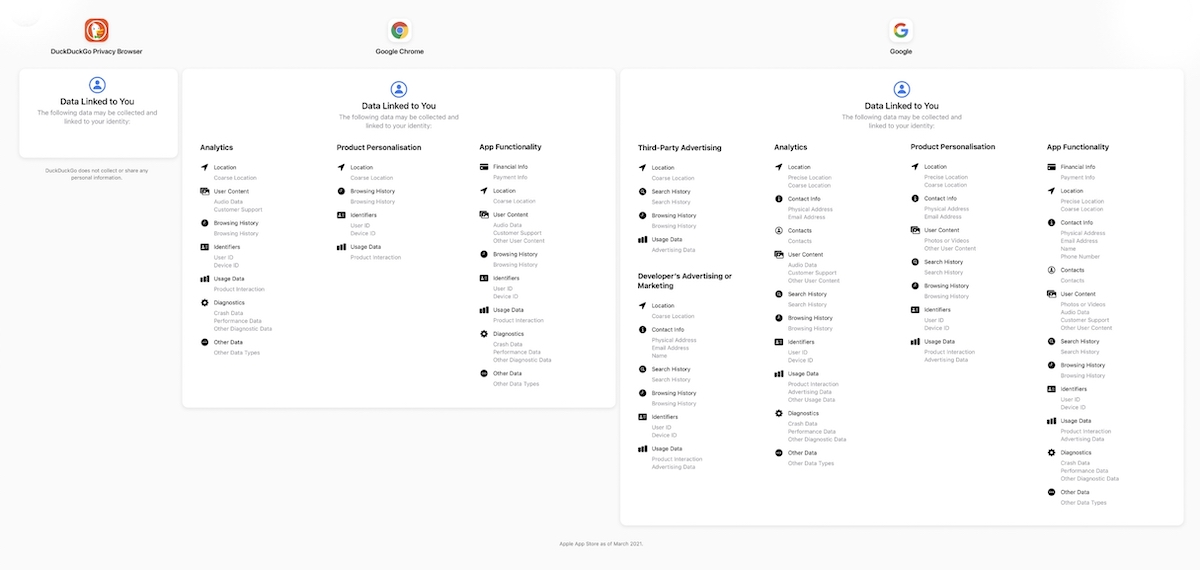A privacy-oriented search engine, DuckDuckGo has called out Google for tracking and collected users browsing history on iOS. After months of delay, Google recently updated the privacy information of its app on the iOS App Store and Chrome web browser which astonishingly reveals that the most popular search engine collects a lot more of users’ data than it should.
In iOS 14, Apple introduced several new privacy updates which are designed to bring transparency in user tracking across third-party apps and websites on iPhone and iPad. The newly launch ‘App Privacy labels’ feature compels all developers to disclose their tracking details. Apple has also introduced a new ‘Privacy-label’ webpage to show privacy labels of all of its native apps.
DuckDuckGo is a secure search engine that claims to not collect users’ data. Making online privacy simple and accessible, the search engine presents its self as a tracking-free and private alternative to Google.
Ever notice ads constantly following you around? That’s in part because Google tracks your searches and hides trackers on millions of websites. By contrast, our private search engine doesn’t track your searches and our DuckDuckGo browser extension and mobile app block Google’s (and many other companies’) trackers across the Internet, helping to keep your browsing history more private, as it should be.
And that’s just the beginning — by using DuckDuckGo you also escape the manipulation of the filter bubble and can use the Internet faster (after all that tracking code is disabled).

DuckDuckGo highlights that Google is spying on iPhone users
On its Twitter account, @DuckDuckGo shared an image of the Google app, Google Chrome, and its own web browser privacy labels. And the updated information reveals that the American search engine collects users’ location, search history, browsing history, and much more data. A lot of personal data is collected for analytical purposes like contact information, contacts, user content, identifiers, and more.

On the other hand, DuckDuckGo’s privacy label shows that it does not collect or share any personal information. Therefore, the browser is accusing Google of deliberately delaying the information, so that it continues spying on users.
Spying on users has nothing to do with building a great web browser or search engine. We would know (our app is both in one).
In addition to other antitrust lawsuits, Google is also facing a $5 billion class-action suit for tracking users in incognito mode. And DuckDuckGo makes it a point to highlight privacy concerns of that mode as well.
It is a myth that you can’t be tracked while using so-called “Incognito” mode. In fact, Incognito mode mainly just deletes information on your computer and does nothing to stop Google from saving your searches, nor does it stop companies, Internet service providers, or governments from being able to track you across the Internet. By contrast, DuckDuckGo search is completely anonymous and if you add our app & extension on top, we help keep you private when browsing off of search results.